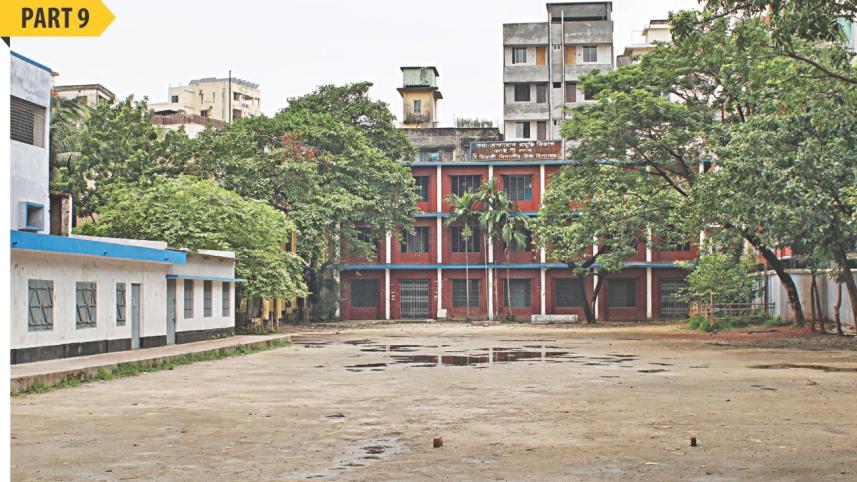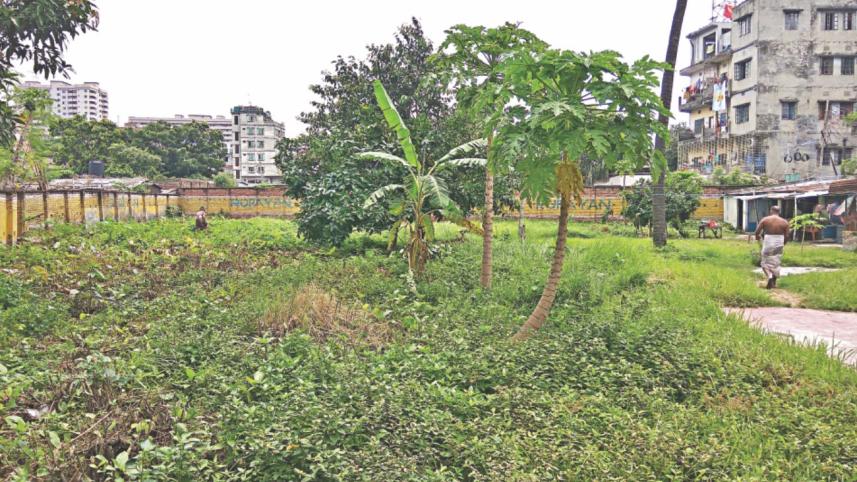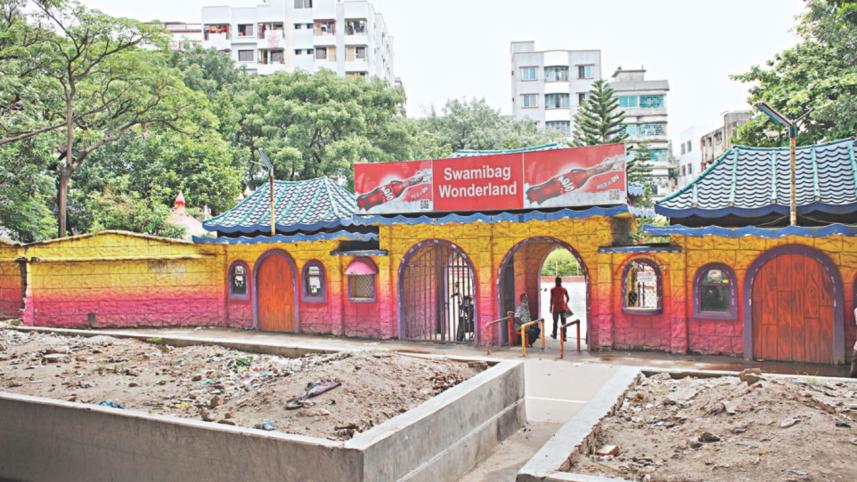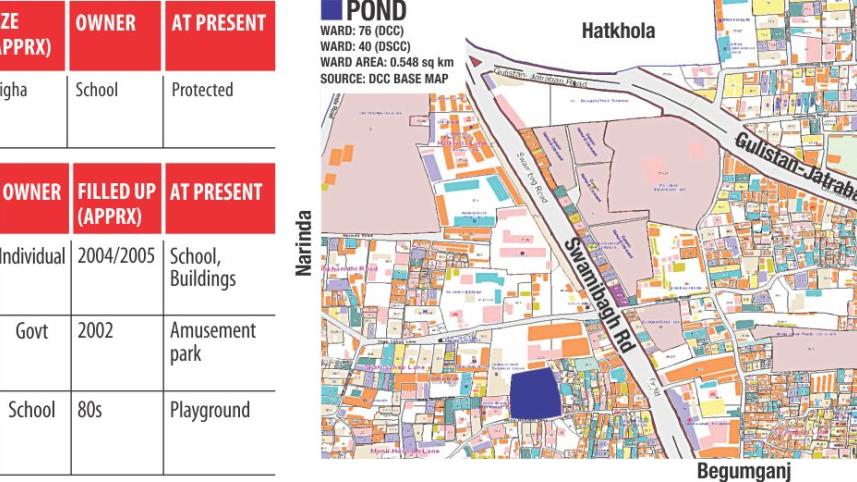Ponds of Dhaka: Alive in memories only

Once Ward-76 of the undivided Dhaka City Corporation (DCC) was full of ponds, providing a much-needed breathing space for the residents.
Due to negligence of the authorities concerned, most of the water bodies of the 0.548 sq km ward (now Ward-40 of Dhaka South City Corporation) were filled up at different times.
According to a survey carried out in 2006 by the DCC, there were only two ponds in the area.
While talking to the residents of the ward including Tikatuly, Narinda, Koratitola and Swamibagh areas, they said there were two more ponds that got replaced by an amusement park and a school.
The water bodies were filled up before the DCC survey, they added.

ISLAM SHAHEBER PUKUR
The around 1.75-bigha pond on KM Das Lane in Tikatuly of Old Dhaka used to be surrounded by banyan and mango trees.
Now, not even a fleeting glimpse of the pond -- Islam Shaheber Pukur -- remains.
There is a school and some semi-permanent structures belonging to a developer company on the land where the reservoir once was.
The owner of the pond was one Asif Chowdhury who purchased the land from Islam Shaheb -- an influential local, said Shahidul Islam.
The elderly resident of Swamibagh said it was filled up around 2004/2005.
Shahidul said a portion of the pond land belonged to the railways where Shahid Kazi Aref Ideal High school has been constructed.
The rest of the land is being used by Mitul Properties Limited, a sister concern of Rupayan group.
Indrajit Rajbongshi, headteacher of the school located at 18/7/A KM Das Lane, said the land for the school was allotted by the government in 2008. The school was also established the same year.

The school was built in memory of Jatiya Samajtantrik Dal leader Kazi Aref Ahmed, a Liberation War organiser, he added.
Shafiqur Rahman, in-charge of Mitul Properties Limited, said they purchased the land from Asif Chowdhury in 2008. “But there was no pond at that time,” he added.
He alleged that even though they purchased the 33 kathas of land, they received 27 kathas. A legal battle is ongoing for the rest of the land, he said.
“We will either sell the property or build buildings on it,” he added.
WONDERLAND PARK POND
Though not on the DCC base map, there used to be a pond in the capital's Koratitola, which has been replaced by an amusement park, according to locals.

The water body, owned by the Dhaka City Corporation, was filled up in 2002 and the Wonderland Park was built in 2003, they said.
Mohammad Ali Hossain, a resident of Koratitola, said he along with his friends used to bathe in the pond even two decades ago. “At times, we would also catch fish there,” he reminisced.
MITALI SCHOOL POND
There used to be a pond inside Mitali School at 72 Swamibagh, which was filed up during the early 80s, said Abdul Gani, caretaker of the school.
He said locals used the around five-katha pond to bathe and wash clothes. The pond was there since the British period.
“There was also a ghatla (staircase),” said Gani. “I used to bathe and catch fish there.”
The pond was filled up by the school authorities to create a playground for the students.

ST JOSEPH SCHOOL OF INDUSTRIAL TRADES POND
While most of the ponds of the ward have been filled up to make way for concrete structures, the pond at St Joseph School of Industrial Trades at Shah Saheb Bari Lane in Narinda remains an example of how a water body should be protected and kept intact.
The reservoir, which is a source of water for the students and staff, is maintained by the school authorities on a regular basis.
The around one-bigha water body is also surrounded by various trees.
The school was established on March 19, 1954. Brother Linus D Rozario CSC, principal of the school, said the pond was there since the British period.
He said they purchased the reservoir along with the rest of the land in 1954. The owner used to use the land as a vacation spot, he added.
Rozario said around 100 students and 20 staff of the school use the pond for washing clothes and bathing.
“We try to keep the water clean by putting lime (chun) in it twice a year. We also harvest rain water and use it as a retention area. Except for drinking, we use the water for all other chores.”
Many of the students learnt to swim there, said the principal. “We also cultivate fish in it from time to time.”
He said they already had some work done to develop the banks for protecting the pond. Rest of the work will be done gradually.
The water body is also used by the people of Hindu community, who use the reservoir to perform their rituals, he said. “Many of them do not want to go to the Buriganga due to the pollution and use the pond.”
At times, it gets difficult to protect the water body and keep it clean. Many from the nearby residents continue to throw garbage in it, he said.
“There is already a scarcity of water bodies in the capital. It's not just the responsibility of the authorities to save those; all of us have to work together in this regard,” said the principal.
(Edited by Hasan Meer)




 For all latest news, follow The Daily Star's Google News channel.
For all latest news, follow The Daily Star's Google News channel.
Comments